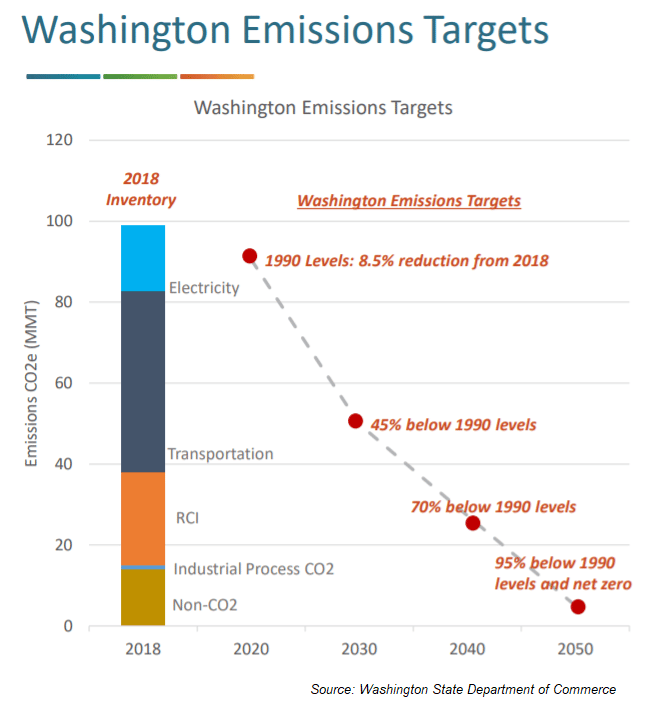Washington Lawmakers Pass Bill to Adopt Clean Fuel Standard

Washington state lawmakers on April 8 passed legislation to establish a clean fuels standard aimed to reduce the carbon intensity of transportation fuel to 20 percent below 2017 levels by 2035. The program is expected to facilitate the shift to lower carbon fuels, including expanding the market for renewable natural gas as a transportation fuel.
The standard, designed to start by Jan. 1, 2023, includes an interim target of 10 percent reduction below 2017 levels by 2028. The program would require the carbon intensity, or emissions attributable to each unit of the fuels, to be reduced by at least 0.5 percent per year in 2023 and 2024, 1 percent per year from 2025-2027, 1.5 percent from 2028-2031, and 2.5 percent from 2032-2034.
The standard provides a market-based mechanism to facilitate the achievement of the state’s emissions reduction goals. Washington enacted legislation in 2020, setting emissions reduction targets of 45 percent by 2030, 70 percent by 2040, and 95 percent by 2050, relative to 1990 levels. As of 2018, the annual emissions in state were 99.6 million metric tons of carbon dioxide, of which 44.9 percent were attributable to transportation sources. The state also enacted the Clean Energy Transformation Act in 2019, which requires electric utilities to transition to carbon-neutral electricity by 2030 and 100 percent carbon-free electricity by 2045.
Currently, California and Oregon have policies requiring reductions in emissions associated with transportation fuels, as measured against a standard unit of fuel energy. California’s program, launched in 2010, requires reductions of 10 percent by 2020 and 20 percent by 2030 in the carbon intensity of gasoline and diesel. Oregon’s initiative, which began in 2015, requires a 10 percent reduction by 2025.
EnerKnol Pulses like this one are powered by the EnerKnol Platform—the first comprehensive database for real-time energy policy tracking. Sign up for a free trial below for access to key regulatory data and deep industry insights across the energy spectrum.
ACCESS FREE TRIAL